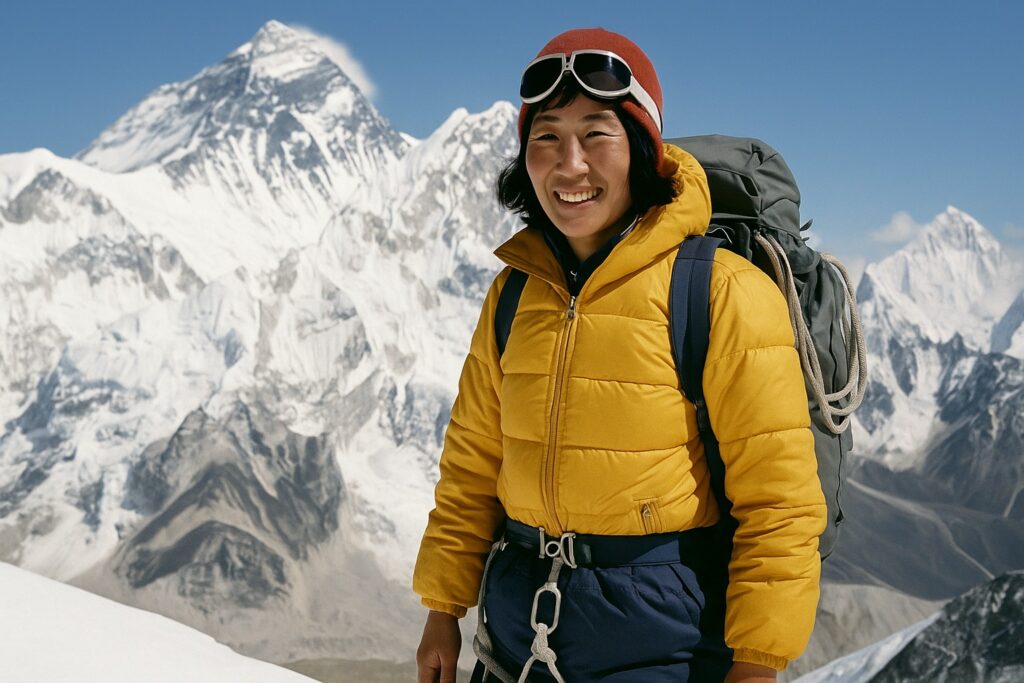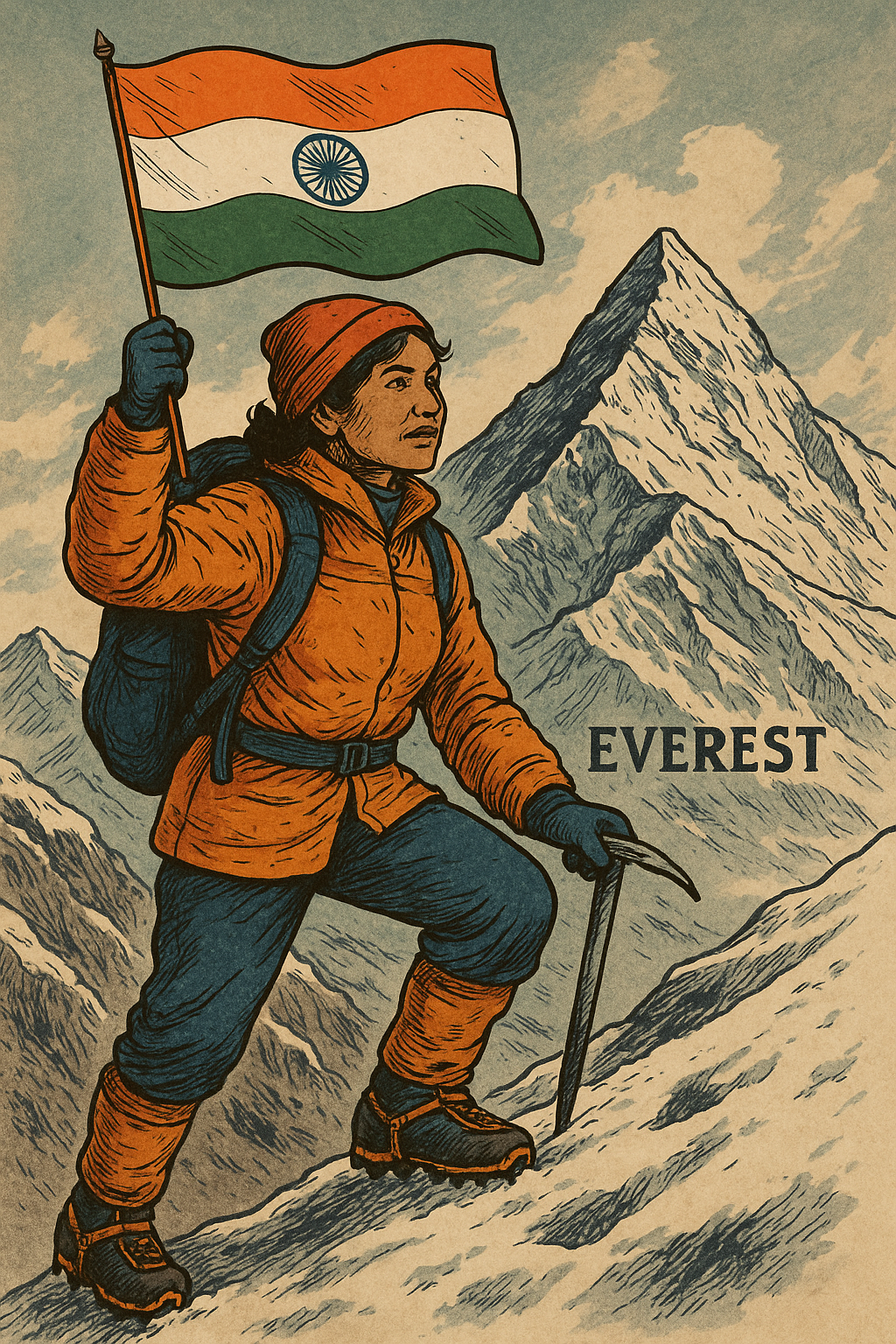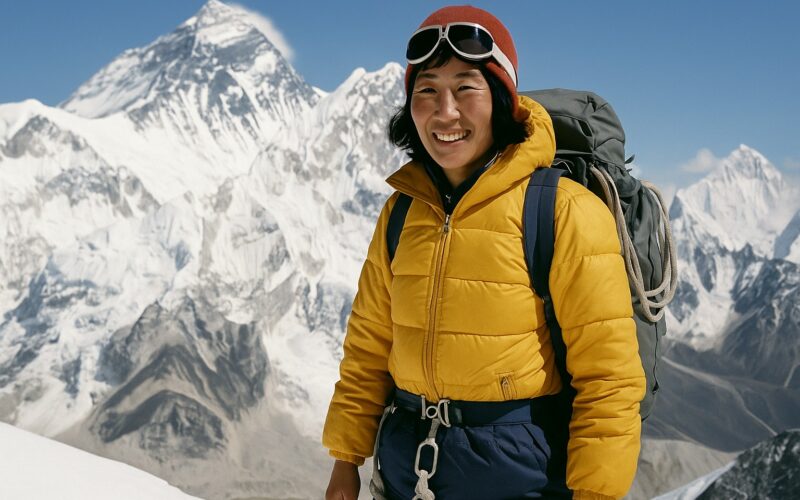
In the world of mountaineering, few names shine as brightly as Junko Tabei. She made history on May 16, 1975, by becoming the first woman to climb Mount Everest. But her story is more than just a record-breaking climb—it’s a tale of determination, resilience, and breaking stereotypes.
🌱 Early Life and Passion for Climbing Mountains
Junko Tabei was born on September 22, 1939, in Miharu, Fukushima, Japan. From an early age, she showed interest in mountain climbing, an uncommon hobby for girls at that time. Despite social pressures and limited resources, she pursued her passion.
Tabei studied English literature at Showa Women’s University, but the mountains always called to her. After graduation, she joined various mountaineering clubs and eventually founded the Ladies Climbing Club: Japan in 1969 — the first of its kind in the country, with a motto: “Let’s go on an overseas expedition by ourselves.”
🧗♀️ Climbing Mount Everest
Preparation and Challenges
In 1975, Tabei led an all-women Japanese expedition to Mount Everest, which was revolutionary at the time. Sponsored by a newspaper and a TV channel, the team faced harsh scrutiny from society, as many believed women were unfit for such endeavors.
While climbing Everest, the team encountered a terrifying avalanche that buried their camp. Tabei was knocked unconscious and had to be dug out. Many would have turned back, but she pressed on.
Reaching the Top
On May 16, 1975, Junko Tabei reached the summit of Mount Everest, standing at 8,848 meters (29,029 ft). She became the first woman in the world to achieve this incredible feat.
Her victory wasn’t just personal — it was symbolic. She proved that gender does not define strength, courage, or capability.
🌍 Beyond Everest: The Seven Summits
Tabei didn’t stop at Everest. Over the years, she climbed the Seven Summits — the highest mountains on each continent. This made her the first woman to complete the Seven Summits, a title she earned by 1992.
These included:
- Mount Kilimanjaro (Africa)
- Mount Aconcagua (South America)
- Mount McKinley/Denali (North America)
- Mount Elbrus (Europe)
- Mount Vinson (Antarctica)
- Mount Kosciuszko (Australia)
- Mount Everest (Asia)
🌿 Environmental Advocacy and Later Life
Junko Tabei was not just a climber — she was also a dedicated environmentalist. She led cleanup expeditions to remove waste from popular mountains, including Everest and Fuji.
In her later years, she continued climbing and promoting environmental awareness, even while battling cancer, which she was diagnosed with in 2012. She climbed her final mountain in 2011, just a few years before her death.
She passed away on October 20, 2016, but her legacy continues to inspire women, adventurers, and environmentalists around the world.
✨ Legacy and Inspiration
Junko Tabei’s life is a shining example of what determination, passion, and belief in oneself can achieve. She broke not only physical boundaries but also cultural and gender barriers.
In 2019, a mountain range on Pluto was even named Tabei Montes in her honor, celebrating her contributions to exploration and human spirit.
Junko Tabei wasn’t just the first woman to climb Mount Everest — she was a trailblazer who inspired a generation of women to follow their dreams, no matter how high. Her legacy continues to resonate in the world of adventure and beyond.
Also Read : Bachendri Pal: The First Indian Woman to Climb Mount Everest

⚠️Beware of Cyber-Crime & Cyber-Fraudulent⚠️

